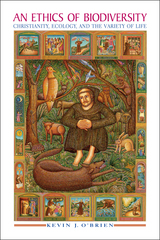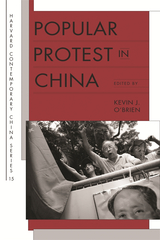
Life on earth is wildly diverse, but the future of that diversity is now in question. Through environmentally destructive farming practices, ever-expanding energy use, and the development and homogenization of land, human beings are responsible for unprecedented reductions in the variety of life forms around us. Estimates suggest that species extinctions caused by humans occur at up to 1,000 times the natural rate, and that one of every twenty species on the planet could be eradicated by 2060.
An Ethics of Biodiversity argues that these facts should inspire careful reflection and action in Christian churches, which must learn from earth’s vast diversity in order to help conserve the natural and social diversity of our planet. Bringing scientific data into conversation with theological tradition, the book shows that biodiversity is a point of intersection between faith and ethics, social justice and environmentalism, science and politics, global problems and local solutions. An Ethics of Biodiversity offers a set of tools for students, environmentalists, and people of faith to think critically about how human beings can live with and as part of the variety of life in God’s creation.


Do our ideas about social movements travel successfully beyond the democratic West? Unrest in China, from the dramatic events of 1989 to more recent stirrings, offers a rare opportunity to explore this question and to consider how popular contention unfolds in places where speech and assembly are tightly controlled. The contributors to this volume, all prominent scholars of Chinese politics and society, argue that ideas inspired by social movements elsewhere can help explain popular protest in China.
Drawing on fieldwork in China, the authors consider topics as varied as student movements, protests by angry workers and taxi drivers, recruitment to Protestant house churches, cyberprotests, and anti-dam campaigns. Their work relies on familiar concepts—such as political opportunity, framing, and mobilizing structures—while interrogating the usefulness of these concepts in a country with a vastly different history of class and state formation than the capitalist West. The volume also speaks to “silences” in the study of contentious politics (for example, protest leadership, the role of grievances, and unconventional forms of organization), and shows that well-known concepts must at times be modified to square with the reality of an authoritarian, non-western state.

Climate change is viewed as a primarily scientific, economic, or political issue. While acknowledging the legitimacy of these perspectives, Kevin J. O’Brien argues that we should respond to climate change first and foremost as a case of systematic and structural violence. Global warming is largely caused by the carbon emissions of the affluent, emissions that harm the poor first and worst. Climate change is violence because it divides human beings from one another and from the earth.
O’Brien offers a constructive and creative response to this violence through practical examples of activism and nonviolent peacemaking, providing brief biographies of five Christians in the United States—John Woolman, Jane Addams, Dorothy Day, Martin Luther King Jr., and Cesar Chavez. These activists’ idealism, social commitment, and political savvy offer lessons of resistance applicable to the struggle against climate change and for social justice.
READERS
Browse our collection.
PUBLISHERS
See BiblioVault's publisher services.
STUDENT SERVICES
Files for college accessibility offices.
UChicago Accessibility Resources
home | accessibility | search | about | contact us
BiblioVault ® 2001 - 2024
The University of Chicago Press









